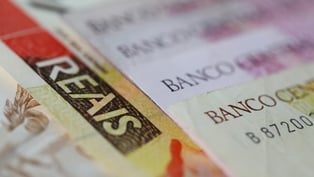Brazilian President Dilma Rousseff has slammed rich nations for unleashing a " tsunami" of cheap money that threatened to " cannibalise" poorer countries such as her own, forcing them to act to protect struggling local industries.
Rousseff's words amounted to some of the highest-profile criticism to date of efforts by the European Central Bank, the Bank of Japan and others to boost their economies through low interest rates and cheap loans.
Without naming specific countries, Rousseff said these measures had damaged emerging market nations such as Brazil by unleashing a wave of capital inflows. That has made their currencies overvalued and their exports more expensive.
Her speech, to construction executives, came hours after Brazil announced the extension of a tax on foreign loans.
The move was designed to weaken the Brazilian currency, the real, but it strengthened instead, highlighting the difficulties Rousseff faces as global investors, flush with cash from the cheap lending, race to invest in Brazil's high-yielding assets.
Brazil has been battling the effects of a strong currency for years but had enjoyed somewhat of a reprieve in recent months as the financial crisis in Europe made global investors more averse to risky assets. With Europe's problems now abating, the real has rebounded more than 8% this year.
" We have a currency war that is based on an expansionary monetary policy that creates unequal conditions for competition," said Rousseff, who is a career economist.
" We will continue to develop (our) country by defending its industry and ensuring that the strategy used by the developed countries to exit the crisis does not cannibalise emerging markets," she said.
" Currency war" is where countries seek to achieve a lower exchange rate to protect exports.
Rousseff's speech, which echoed words earlier by her finance minister Guido Mantega, appeared to be a co-ordinated effort to express dismay as central banks in the developed world keep interest rates at record lows and pour cheap cash into markets.
Some of Brazil's problems are homegrown. The country has been a sponge for global liquidity in large part because it has some of the world's highest interest rates.
Brazil warned it would take further measures to stop the real strengthening. A presidential decree published on Thursday extended a 6% tax known as the IOF on overseas loans with maturities of up to three years. The tax was previously charged when companies in Brazil took foreign loans maturing up to two years.









